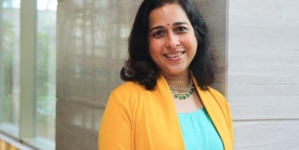-
LONDON: Indian-Origin Teen In UK Gets “Life-Changing” Cancer Treatment - April 25, 2024
-
SILICON VALLEY: All About Pavan Davuluri, New Head Of Microsoft Windows - April 25, 2024
-
LONDON: UK’s India Gate To Commemorate Role Of Indian Soldiers From World Wars - April 24, 2024
-
HARARE: Shri Bramha Kumar appointed as the next Ambassador of India to the Republic of Zimbabwe - April 23, 2024
-
LONDON: Indian-Origin Principal Wins UK Legal Challenge Over School Prayer Ban - April 23, 2024
-
TORONTO: Indian-Origin Doctor Needs ₹ 2 Crore For Legal Fees. Elon Musk Responds - April 22, 2024
-
KINSHASA: India-Democratic Republic of Congo Foreign Office Consultations - April 21, 2024
-
LONDON: UK Court Allows Sale Of Nirav Modi’s Luxury London Apartment - April 21, 2024
-
TEHRAN: Travel advisory for Iran and Israel - April 20, 2024
-
LUXEMBOURG: Shri Saurabh Kumar concurrently accredited as the next Ambassador of India to the Grand Duchy of Luxembourg - April 20, 2024
NEW DELHI: Understanding Infertility In Both Men And Women: Know Treatment Options
NEW
DELHI: Infertility
can be a very complicated topic to talk about. This is because of the lack of
information about various treatments available to couples trying to conceive.
This is especially for couples new to the discussion around infertility and
assisted reproductive procedures. To address fertility related issues, it is
crucial to know the causes behind it. In this article here are some possible
reasons behind rising rates of infertility amongst men and women, factors to
look out for, treatments, and their success rates.
Infertility in men and women
Causes of
infertility amongst men include:
- Low counts or low motility
of sperm - Abnormal sperm production or
no sperm production - Erectile dysfunction
- Premature ejaculation
While the
causes in women include:
- Ovulatory disorders – where
the woman’s reproductive cell or the egg is not produced every month - Tubal disorders – where the
fallopian tubes are blocked or damaged; endometriosis, adenomyosis
fibroids in the uterus, or if the patient has low egg reserve.
Over 30%
of couples go through unexplained infertility.
Dr.
Shweta Mittal, Consultant Gynecologist at Sir Gangaram Hospital mentions that
“These causes are also grouped into correctible and non-correctible
causes. An example of treatable causes is erectile dysfunction in men or
polycystic ovarian syndrome, which affects many couples, and can be treated
medically.
Some of
these disorders can be corrected for both men and women through certain
lifestyle changes such as stopping smoking, consuming alcohol, or taking
injectable medication or surgery to improve fertility.
However,
some unexplained causes of infertility take longer to diagnose and understand.
Conditions like endometriosis in women are required a surgical approach to
improve their fertility. These could be linked to certain medical conditions in
the medical histories of the couple, such as diabetes, early cancers,
infections, etc., which could have impacted the couple’s fertility earlier.
These take longer to solve but most often respond to the treatment
provided”.
Dr.
Nayana Patel, Consultant Gynecologist at Akanksha IVF Center states that
“There are certain treatments for different levels of infertility. For
mild infertility, ovulation induction is conducted when the couple is young,
more or less healthy, but still faces some problems. The woman’s egg is tracked
according to her cycle and is given an injection to increase fertility during
ovulation so that chances of success are higher. These medications could either
be given orally or through injections”.
The
second treatment includes checking if the woman’s tubes are in good health
through simple x-rays and straightforward and minimally invasive surgery to
clear any blockage. This could also be done for the ovaries and the endometrial
layer within the uterus. Another treatment is intrauterine insemination, where
the woman is given injections or oral supplements and then takes the man’s sperm
and prepares the best sample for placing it in the uterus. It is a painless
procedure with a brief recovery period. If these are unsuccessful, then in
vitro fertilization or IVF is done.
The
experts also recommend that if you are suggested to take IVF, try going for the
procedure as soon as possible because the longer a couple waits, the smaller
the chance of success is. In this process, the eggs are taken from the ovaries,
fertilized by the male sperm, and then within five days, are transferred inside
the female’s uterus. IVF is recommended when the tubes are blocked when the
female and the male cannot conceive for three years or more of unexplained
fertility.
Because
infertility is something most people conventionally abstain from discussing,
both doctors note that most couples come much later than they could have,
causing them to have a much lower chance of success in these treatments. Enough
emphasis should also be given on age being an undeniably crucial factor in the
discussion around infertility. Although doctors do acknowledge this as a
critical factor, they also remain positive in that most couples who come for
these different treatments do have a chance at success.
(Dr.
Nayana Patel is a Consultant Gynecologist at Akanksha IVF Center and
Dr. Shweta Mittal is a Consultant Gynecologist at Sir Gangaram
Hospital)























